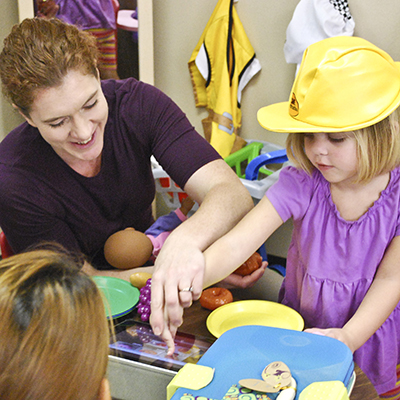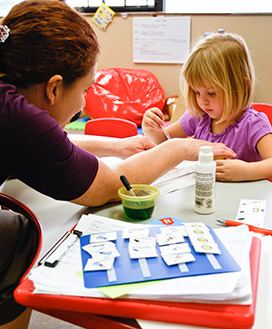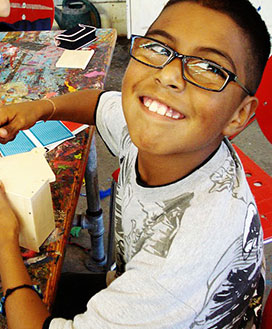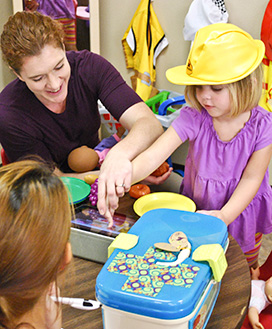The Laboratory Temperament Assessment Battery (Lab-TAB)
The Laboratory Temperament Assessment Battery (Lab-TAB) is a standardized instrument for the laboratory assessment of early temperament. Click the Lab-TAB or Instrument Descriptions tab above for more information. To request a manual, click the Manual Request tab.
Toddler Behavior Assessment Questionnaire (TBAQ-R)
The Toddler Behavior Assessment Questionnaire (TBAQ-R) is a 120 item, eleven-scale parent report instrument designed to examine temperament-related behavior in 16–36 month old children. Click the TBAQ-R or Instrument Descriptions tab above for more information. To request a copy of the TBAQ-R, click the Manual Request tab.
Lab-TAB & TBAQ-R Publications
- Planalp, E. M., Van Hulle, C. A, Gagne, J. R., & Goldsmith, H. H. (2017). The infant version of the Laboratory Temperament Assessment Battery (Lab-TAB): Measurement properties and implications for concepts of temperament. Frontiers in Psychology: Personality and Social Psychology, 8, 1-17.
- Gagne, J. R., Van Hulle, C. A., Aksan, N., & Essex, M. J., & Goldsmith, H. H. (2011). Deriving childhood temperament measures from emotion-eliciting behavioral episodes: Scale construction and initial validation. Psychological Assessment, 23, 337-353.
- Goldsmith, H. H. (1996). Studying temperament via construction of the Toddler Behavior Assessment Questionnaire. Child Development, 67, 218-235.
Lab-TAB Goals
Our goal in developing Lab-TAB is to make available a standardized instrument for laboratory assessment of early temperament. Lab-TAB comprises a set of 3-5 minute episodes that simulate everyday situations in which one can reliably observe individual differences in the expression of emotion, in approach/avoidance and other instrumental behavior, in activity level, and in regulatory aspects of behavior (or temperament). With the availability of Lab-TAB, it will no longer be necessary to develop laboratory measures of temperament anew for every study. Appropriate standardization data on large samples will allow assignment of more accurate scores rather than relying on standardization in individual samples. Lab-TAB will also facilitate comparison of results across studies from different laboratories.
Theoretical Orientation
An important issue in temperament research is whether temperament dimensions are best viewed as types or dimensions. The underlying conceptualization of Lab-TAB is dimension-oriented, but it is conceivable that typological characterizations will prove superior. The current coding systems, which can be examined in detail in the manuals, are designed with a dimensional conceptualization of individual difference variability. For example, facial, vocal and motoric indicators of target discrete emotions are rated using a combination of both event- and interval-based coding. Specific dimensions of children’s behavior are characterized with a combination of binary (presence/ absence), ordinal (peak intensity) or ratio (latency) scales.
Because the episodes are modeled after everyday situations, they tend to elicit a variety of emotions in addition to specifically targeted emotions. For example, although Stranger Approach episodes target fearfulness in social situations, these episodes also reliably elicit sadness reactions. As can be seen from a detailed examination of the manuals, some of these non-target emotions are incorporated into the coding systems.
As with any observational research, individual researchers can modify both the coding systems and the situations to best reflect the focused questions of interest. Examples of modifications in administration of particular episodes are included in the manuals.
Versions
Currently, we have three versions of the Laboratory Temperament Assessment Battery: two infant versions, one for children who have started to crawl (locomotor) and one for those who have not (prelocomotor), and a version for preschoolers. Email Us to learn more about each of the manuals, including descriptions of episodes and modifications.
History
The prelocomotor and locomotor versions of Lab-TAB were conceived and initially designed by Hill Goldsmith, with the assistance of Loretta Rieser-Danner, while at the University of Texas-Austin between 1981 and 1984. The present format and much of the content of these manuals were developed by Goldsmith and Mary K. Rothbart, and Goldsmith’s students at the University of Oregon, beginning in 1985. Some episodes had a direct history of prior usage in laboratories of Goldsmith, Rothbart, and Joseph J. Campos. Some episodes were more indirectly derived from procedures in use in other developmental laboratories.
Constructing the preschool version of Lab-TAB was a collaborative effort of Goldsmith and Judy Reilly of San Diego State University. Although many episodes were designed specifically for this battery, others were adopted fairly directly from procedures used by Jerome Kagan of Harvard University and Grazyna Kochanska of the University of Iowa. Modifications of the preschool battery by Goldsmith and Reilly are continuing. Recently, some modifications of the battery for use with slightly older children, for home administration, and for use with samples at risk for behavioral disorders have been undertaken by Marilyn Essex of the University of Wisconsin-Madison and Goldsmith.
Construction of the various versions of Lab-TAB has been supported by NIMH, The MacArthur Foundation, and the University of Wisconsin.






